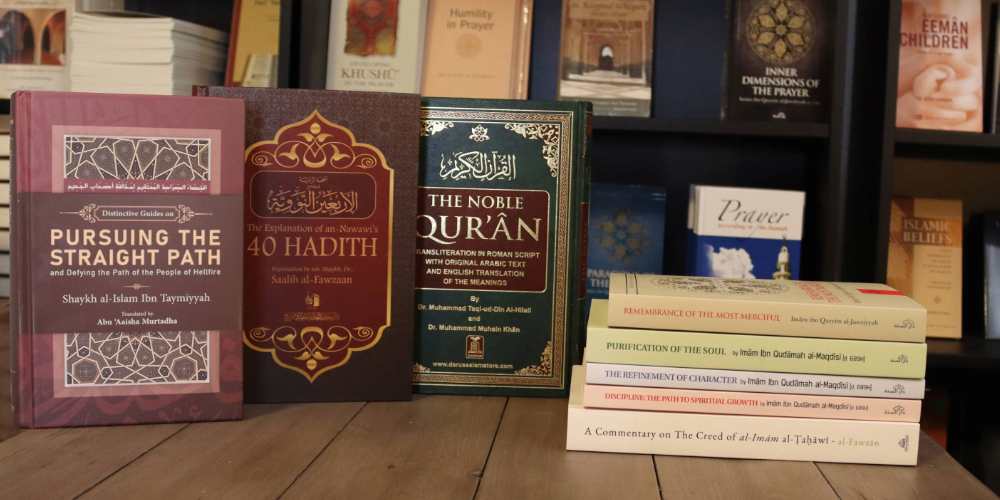Ramadan is a special month in the Islamic calendar that is observed by Muslims worldwide. During this month, Muslims abstain from food, drink, and other physical needs during daylight hours as a form of worship to Allah. Ramadan is an essential part of Islam, and its meaning and significance are often misunderstood by non-Muslims. Therefore, this article aims to introduce Ramadan to non-Muslims and provide an insight into this significant religious practice.
Meaning and Significance of Ramadan
Ramadan is the ninth month of the Islamic calendar and commemorates the revelation of the Quran to the Prophet Muhammad. The month of Ramadan holds a significant place in the hearts of Muslims worldwide as it is one of the Five Pillars of Islam, which is the foundation of Islamic practice. The Five Pillars of Islam are the declaration of faith, prayer, charity, fasting, and pilgrimage to Mecca. Fasting during Ramadan is an essential religious obligation for Muslims, and it is believed to bring them closer to Allah.
Preparation for Ramadan
Before the start of Ramadan, Muslims engage in spiritual and physical preparation. They engage in extra acts of worship, such as reciting the Quran, making more dua (supplication), and performing voluntary prayers. They also prepare physically by ensuring that their bodies are healthy and well-nourished to withstand the long hours of fasting.
Fasting in Ramadan
Fasting in Ramadan involves abstaining from food, drink, and other physical needs from dawn until sunset. Fasting during Ramadan has many benefits, such as teaching self-discipline and self-control. Fasting also provides an opportunity for Muslims to reflect on their relationship with Allah and seek forgiveness for their sins. During Ramadan, Muslims also perform extra acts of worship, such as Taraweeh prayers, which are voluntary prayers performed after the Isha prayer.
Celebrating Eid al-Fitr
Eid al-Fitr is a significant Islamic festival that marks the end of Ramadan. It is celebrated on the first day of Shawwal, the tenth month of the Islamic calendar. On this day, Muslims gather with family and friends to offer prayers, exchange gifts, and enjoy delicious meals. The day is also an occasion for forgiveness and reconciliation, and Muslims are encouraged to forgive those who have wronged them and seek forgiveness from those whom they have wronged.
Common Misconceptions about Ramadan
Misconception 1: Ramadan is a Time of Sadness and Hardship
One of the common misconceptions about Ramadan is that it is a time of sadness and hardship for Muslims. However, this is far from the truth. Ramadan is a time of joy and celebration, as it marks the month in which the Quran was first revealed to the Prophet Muhammad. Muslims also look forward to breaking their fast with delicious meals with family and friends, as well as attending taraweeh (extra) prayers in the evening.
Misconception 2: Fasting during Ramadan is only for Physical Health Benefits
Another common misconception about Ramadan is that fasting is only for physical health benefits such as weight loss or detoxification. While fasting during Ramadan does have physical health benefits, such as promoting weight loss and improving blood sugar levels, the primary purpose of fasting is to strengthen one's faith and devotion to Allah.
Misconception 3: Muslims Starve Themselves During Ramadan
Another common misconception about Ramadan is that Muslims starve themselves during the month. However, this is not true as Muslims are allowed to eat and drink before sunrise and after sunset. During these times, Muslims typically enjoy delicious meals with their families and friends.
Misconception 4: Ramadan is Only Observed in Muslim Countries
Ramadan is observed by Muslims worldwide, including those who live in non-Muslim societies. Non-Muslims can support their Muslim friends and colleagues during Ramadan by being respectful of their beliefs and practices.
Misconception 5: Fasting During Ramadan is Harmful to Health
Fasting during Ramadan is generally safe and has many health benefits. However, it is essential to maintain a healthy diet and avoid overeating during the non-fasting hours to ensure proper nutrition.
Misconception 6: Ramadan is a Time for Violence and Terrorism
Unfortunately, Ramadan is sometimes associated with violence and terrorism. However, this is not true, as Ramadan is a time of peace, reflection, and worship.
This is far from the truth as Ramadan is a time of peace, reflection, and worship. Another misconception is that fasting during Ramadan leads to weight loss. While it is true that some people may lose weight during Ramadan, the primary purpose of fasting is not to lose weight but to worship Allah. Finally, another misconception is that Muslims starve themselves during Ramadan. This is not true as Muslims are allowed to eat and drink before sunrise and after sunset, and they usually enjoy delicious meals with their families during these times.
Ramadan in a Non-Muslim Society
Ramadan is observed by Muslims worldwide, including those who live in non-Muslim societies. Non-Muslims can support their Muslim friends and colleagues during Ramadan by being respectful of their beliefs and practices. They can also participate in interfaith activities and learn more about Ramadan and its significance. In many cities, interfaith iftars (the meal Muslims eat to break their fast) are held, where people from different faiths come together to share a meal and learn more about each other's beliefs.
Conclusion
Ramadan is a special month in the Islamic calendar that holds immense significance for Muslims worldwide. Fasting during Ramadan is an essential religious obligation for Muslims and has many spiritual and physical benefits. Non-Muslims can show support for their Muslim friends and colleagues during Ramadan by being respectful of their beliefs and participating in interfaith activities. By understanding Ramadan and its significance, we can build bridges of understanding and mutual respect.
FAQs
-
Is fasting during Ramadan mandatory for all Muslims?
- Fasting during Ramadan is mandatory for all adult Muslims who are physically and mentally able to fast. However, there are exceptions for certain groups, such as pregnant women and those with health conditions.
-
How long is the fasting period during Ramadan?
- The fasting period during Ramadan begins at dawn and ends at sunset, which can be anywhere from 12 to 16 hours depending on the location and time of year.
-
What is the significance of Eid al-Fitr?
- Eid al-Fitr marks the end of Ramadan and is a time for Muslims to celebrate with family and friends, exchange gifts, and seek forgiveness and reconciliation.
-
Can non-Muslims participate in Ramadan?
- Non-Muslims are welcome to participate in interfaith activities and learn more about Ramadan and its significance. However, fasting during Ramadan is an act of worship that is reserved for Muslims.
-
What is the purpose of fasting during Ramadan?
- Fasting during Ramadan is an act of worship that helps Muslims develop self-discipline and self-control. It also provides an opportunity for reflection, spiritual growth, and seeking forgiveness for sins.




Leave a comment
This site is protected by hCaptcha and the hCaptcha Privacy Policy and Terms of Service apply.